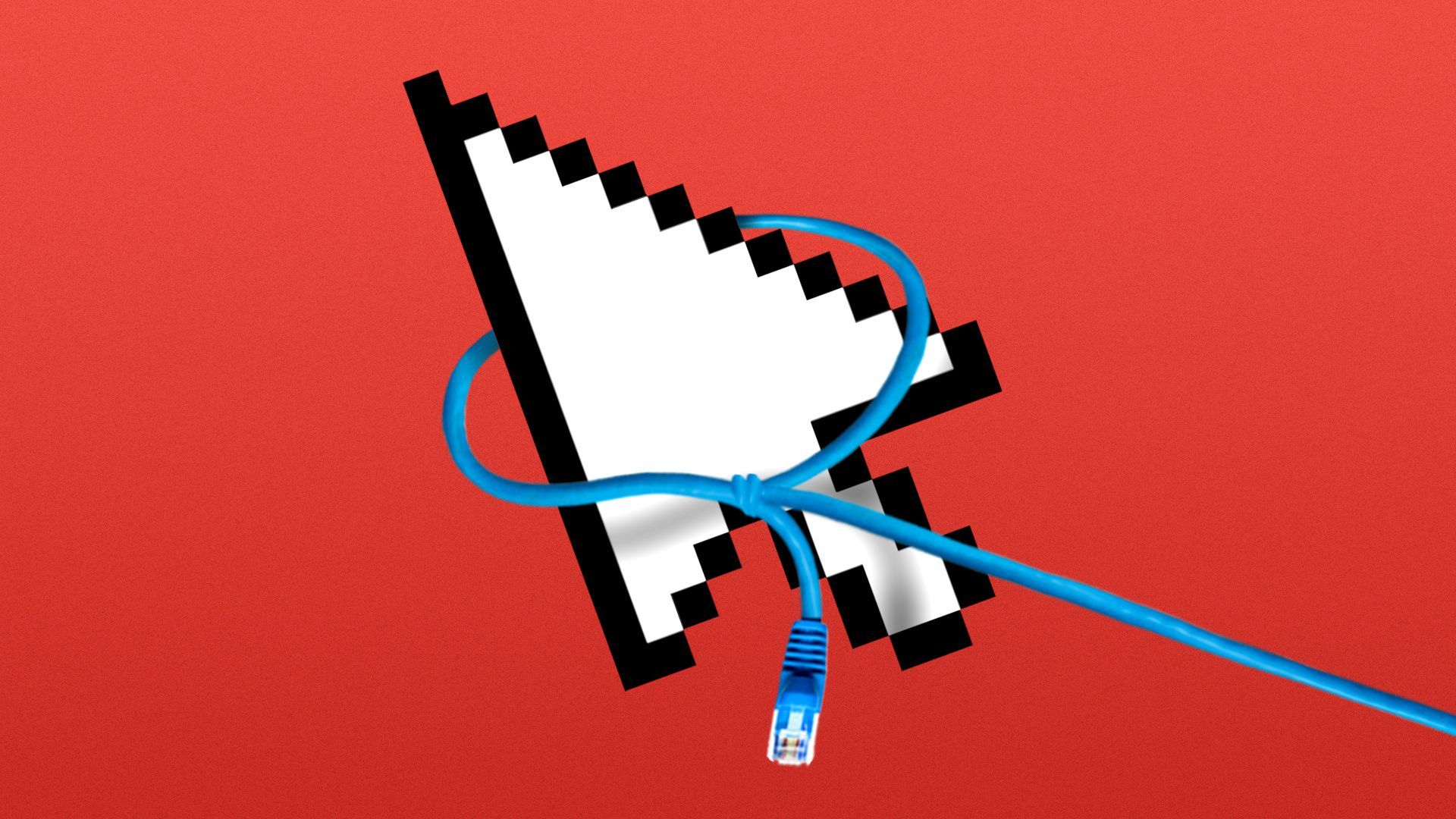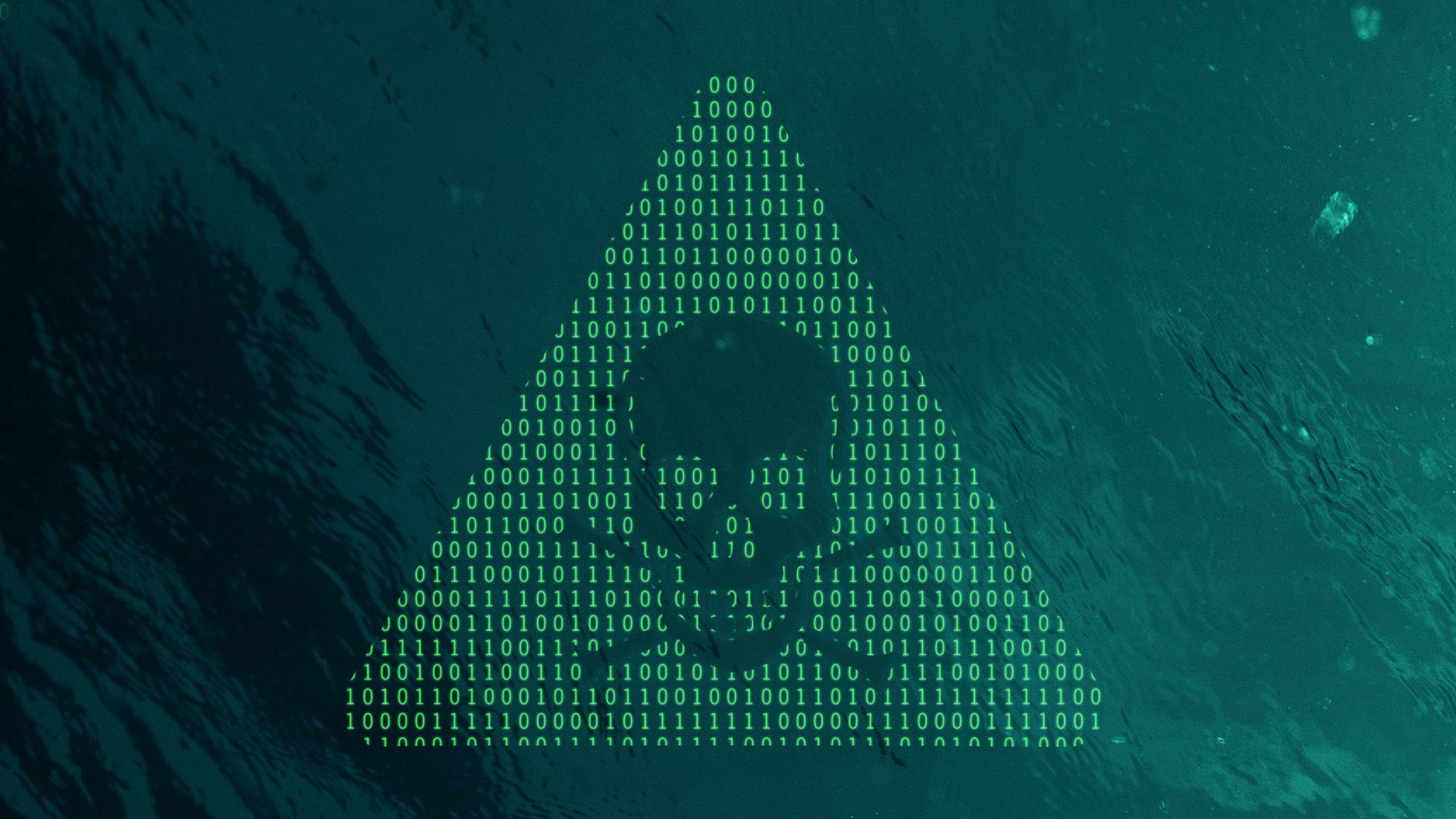| | | | | | | Presented By Merck | | | | Axios Login | | By Ina Fried ·Jul 14, 2021 | | I watched a guy make bagels and now I want a bagel. - Huh, now you want a bagel.
Today's newsletter is 1,235 words, or a 5-minute read. | | | | | | 1 big thing: Net neutrality battle looms |  | | | Illustration: Annelise Capossela/Axios | | | | The Biden administration is gearing up for a showdown with cable and telecom companies over plans to bring back Obama-era net neutrality rules, Axios' Margaret Harding McGill reports. Why it matters: The Trump administration took a hands-off approach to the telecom industry, but the White House is now reversing course with new plans to regulate the behavior of America's internet service providers. Catch up quick: The Federal Communications Commission adopted net neutrality rules in 2015 that prohibited broadband providers from blocking websites, slowing web traffic or cutting deals with companies to speed traffic to consumers. - Under the Trump administration, the FCC repealed those rules, but versions have cropped up at the state level.
What's happening: President Biden's wide-ranging competition executive order that in part encouraged the FCC to reinstate the net neutrality rules was met with opposition from broadband industry groups. - "Net neutrality has become an expensive, time-wasting exercise that has little real world effect," Michael Powell, president of cable trade group NCTA, said in a statement. "The drama detracts from focusing on genuine broadband issues, most critically our collective effort to get broadband to communities that lack service."
- Industry leaders fear net neutrality rules will pave the way for the government to set broadband prices and have argued that the rules deter investment in the sector.
The other side: But the administration believes that net neutrality rules are good policy and, rather than hamper investment, push companies to focus on building out their networks because they block other avenues for revenue. - "The absence of net neutrality opens up the possibilities of making money in ways other than just building better infrastructure and charging more for it," Tim Wu, special assistant to the president for technology and competition policy, told Axios in an interview. "Because you can try and collect side payments of various kinds. It basically drives you towards a fee-driven model."
- "There's a lot more revenue opportunities, so there's less reason to do [capital expenditure]."
- Wu is widely credited as coiner of the term "net neutrality," which he outlined in a 2003 legal paper.
What's next: All eyes will be on the FCC to begin the lengthy process to reinstate the rules. - Acting chairwoman Jessica Rosenworcel, a supporter of the rules who opposed the repeal, declined to say Tuesday if she intends to start a rulemaking to bring back the regulations.
Yes, but: Biden has yet to name a third Democrat to the commission (or a permanent leader), so the agency lacks the Democratic majority necessary to overcome likely Republican opposition. The intrigue: Republicans have historically opposed net neutrality's limits on telecom-sector firms, but increasingly are calling for similar common carrier rules for other parts of the online ecosystem. - Ohio Attorney General Dave Yost, a Republican, said Google is so vital and ubiquitous it should be treated as a public utility for internet search, and regulated as such.
- Republican FCC commissioner Brendan Carr said Tuesday he would be in favor of imposing "anti-discrimination rules" on Big Tech platforms.
- "We are not seeing discrimination taking place by ISPs," Carr said. "I think we do see significant discriminatory conduct at the layers of the stack of beyond ISPs — whether it's Twitter blocking the sharing of a URL, or Microsoft blocking search results for 'tank man.'"
|     | | | | | | 2. Russian ransomware group's sites go down |  | | | Illustration: Brendan Lynch/Axios | | | | Dark web sites tied to the Russian-based cyber gang REvil were not operating on Tuesday, per CNBC. The sites' disappearance comes two weeks after the group launched a large-scale ransomware campaign that affected more than 1,500 companies around the world, Axios' Jacob Knutson reports. Why it matters: It's unclear whether the sites — which REvil uses to facilitate its ransom collection efforts — are down because of a technical problem, a law enforcement operation, or some other explanation. The group's public spokesperson has also been silent on message boards since last week, according to Politico. - President Biden called Russian President Vladimir Putin on Friday to demand that he crack down on cyber gangs operating in Russia.
- He warned that the U.S. would take action to "defend its people" against ransomware attacks, and suggested that could include taking the hackers' servers offline.
Flashback: DarkSide, another Russia-based hacking group, ceased operations after it shut down Colonial Pipeline during a ransomware operation, leading to widespread gas shortages in the U.S. for several days. - The Department of Justice later announced that U.S. investigators gained access to the infrastructure DarkSide used to carry out its extortion operations and recovered part of the ransomware payment the pipeline gave the group to regain access to its computers.
Yes, but: Security experts have said that cyber criminal groups sometimes disband and return under different names, so it's impossible to know whether REvil's shutdown is permanent. The big picture: The full extent of REvil's most recent ransomware operation is still unknown. - The group was responsible for several other prominent ransomware attempts, including one that forced major meat supplier JBS to briefly shut down its beef plants across the U.S.
- REvil at one point was demanding $70 million to restore data it claimed for ransom through the July 4 weekend operation that targeted Kaseya software, though it's currently unknown how many companies made ransom payments.
Go deeper: Assessing the size of the Kaseya ransomware attack |     | | | | | | 3. Discord buys content moderation startup | | Chat service provider Discord is buying Sentropy, a venture-backed startup that aims to use machine learning to help fight online harassment. Why it matters: Helping protect against harassment is one of the key challenges facing online community services. - 26 Sentropy employees, including its founders, are joining Discord this week.
- Financial terms were not disclosed.
Context: Sentropy, backed by Reddit co-founder Alex Ohanian, started out with a vision of offering harassment prevention as a service, much the way companies use Zendesk to handle customer service, Twilio to build in communication capabilities or Stripe to process payments. - "Facebook and Google are going to continue to do this on their own," Sentropy CEO John Redgrave told Axios last year. "The rest of the internet just does not have their talent set."
- Earlier this year, Sentropy said it was testing a service to allow individual Twitter users to use its tools to help avoid harassment.
|     | | | | | | A message from Merck | | Thought leaders + bold conversations = Teal Talks | | |  | | | | Merck launched a new digital series that focuses on health, policy and business trends in a post-COVID-19 world. The idea: Teal Talks provides key insights on the state of the world through bold, intelligent conversations with key influencers, experts and leaders from around the world. | | | | | | 4. Cuba blocks social media access after protests |  Data: Axios analysis of NetBlocks reports through Feb. 2021; Map: Andrew Witherspoon/Axios Cuba has limited access to some social media and messaging apps following anti-government protests on Sunday. Why it matters: Governments are increasingly using partial or complete internet shutdowns as a standard response to protests. According to NetBlocks, Cuba's national internet service provider was blocking access to WhatsApp, Facebook and Instagram, as well as some Telegram servers. - As of Tuesday it said VPNs were working to help evade the government crackdown.
Flashback: NetBlocks spotted a similar crackdown in Cuba in November 2020, following separate protests over artistic freedom. Go deeper: Internet blackouts skyrocket amid global political unrest |     | | | | | | 5. Take note | | On Tap - Microsoft's partner conference, Inspire, takes place today and tomorrow online.
ICYMI |     | | | | | | 6. After you Login | | Check out this sea slug that looks more like a "leaf sheep." |     | | | | | | A message from Merck | | Leaders are confident that leisure and travel will make a comeback | | |  | | | | The rise of COVID-19 vaccination rates is encouraging many Americans to go out to restaurants, see movies and take vacations. Teal Talks' latest episode gathers leaders to discuss how the cinema, restaurants and cruise industries are poised for a comeback in a post-pandemic era. Watch now. | | |  | | It'll help you deliver employee communications more effectively. | | | | | | Axios thanks our partners for supporting our newsletters. If you're interested in advertising, learn more here.
Sponsorship has no influence on editorial content. Axios, 3100 Clarendon Blvd, Suite 1300, Arlington VA 22201 | | | You received this email because you signed up for newsletters from Axios.
Change your preferences or unsubscribe here. | | | Was this email forwarded to you?
Sign up now to get Axios in your inbox. | | | | Follow Axios on social media:    | | | | | |
No comments:
Post a Comment